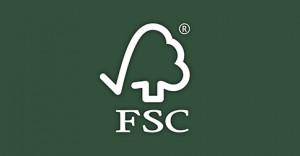Resolute Forest Products is threatening not to seek new Forest Stewardship Council certifications for its Canadian forests over fears that possible changes to the designation process could constrain its supply of wood. Source: Financial Post
Chief among the Montreal-based company’s concerns is a proposal by Greenpeace that would see “the vast majority” of intact forests — those that have been undisturbed by roads or settlements — protected.
“Until significant progress is made in addressing these matters, Resolute will work to maintain its existing FSC forest management certificates where possible, but will not pursue new certification,” the company said as it announced the reinstatement of an FSC certificate for the Black Spruce/Dog River-Matawin forest covering 2.4 million hectares in northwestern Ontario.
That certificate was suspended in January 2014 following an audit by the Rainforest Alliance that resulted in a legal fight between Resolute and the review agency.
The dispute was settled last February and the reinstatement follows Resolute’s efforts to secure the support of First Nations along with local communities and other partners.
The FSC is the largest certification regime in Canada, covering about 50 million hectares of Canadian forests.
Resolute, which produces lumber, pulp and paper, is the largest holder of FSC certificates in Canada and second-largest in North America.
However, it cautioned that the future of FSC certifications in Canada are at risk unless industry concerns are addressed.
Resolute spokesman Seth Kursman said the entire forestry sector worries about the Greenpeace proposal, put forth last year at an FSC international congress in Spain.
“If Motion 65 goes ahead as currently written … you are going to find very few if any companies in the Canadian context that are able to maintain FSC certification,” he said.
The Quebec Forest Industry Council has warned that any additional restrictions on accessing wood could further threaten mills and employment.
It said the province has already reduced the annual allowable cut by 23% over the past decade and established a northern limit that eliminates from harvest about 42% of the continuous boreal forest and 85% of intact forest landscapes.
“Quebec has already done its part to maintain intact forest landscapes,” the group wrote in a letter last month to FSC Canada.
“The addition of further constraints on harvesting intact forest landscapes within the managed forest would inevitably result in very substantial reductions in wood supply, and therefore the loss of many jobs.”
FSC Canada president Francois Dufresne called the industry’s concerns “premature,” coming before it issues a first draft report of the proposed new forest management standard in the coming days and holds consultations.
“Before it’s even public they are saying it’s not good or have serious doubts about it,” he said.
Mr Dufresne said there’s an opportunity to find “common ground” to maintain a viable forest industry.
“Certainly it’s not the intention of FSC to cause these issues in the future but we also have to recognize the international will to take care of these remaining forests around the globe for climate change and ensure there’s not degradation from forest causing emissions in the atmosphere,” he said.
Greenpeace said the reinstatement of the FSC certificate for the Black Spruce/Dog River-Matawin forest provides a “feasible path” for Resolute to recover terminated certificates for Ontario’s Caribou Forest and Quebec’s Montagnes Blanches.
“We also urge the company to discontinue its public undermining of the FSC system, which is the only credible forest certification system that balances economic, social, environmental and Indigenous voices,” Greenpeace said in a news release.






